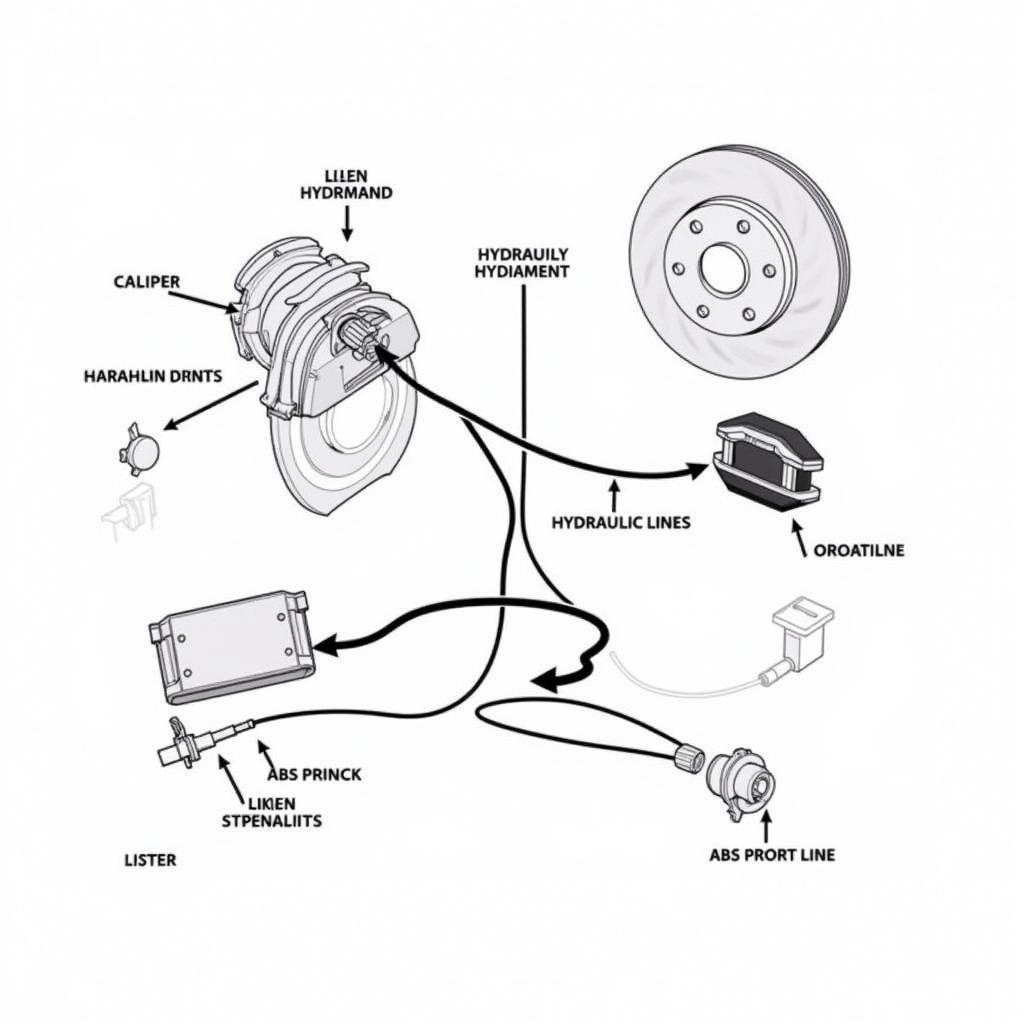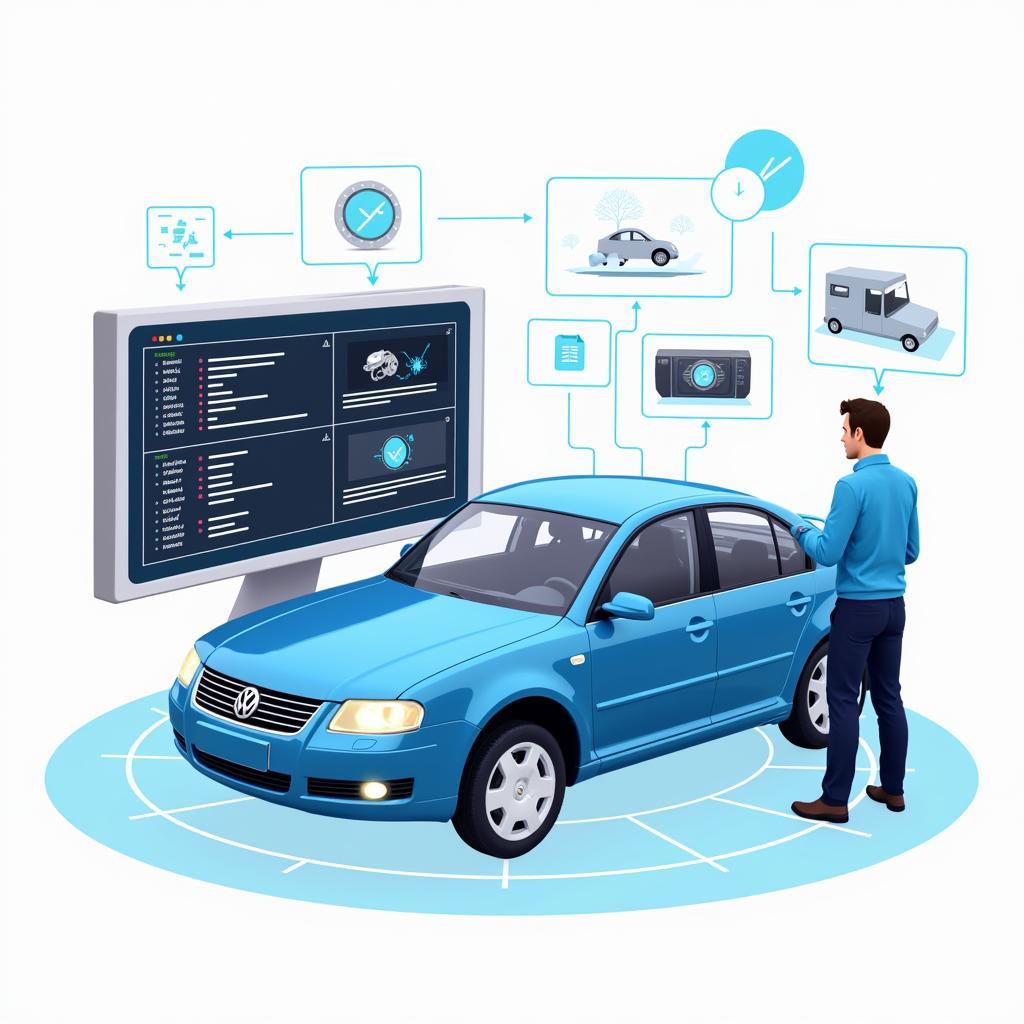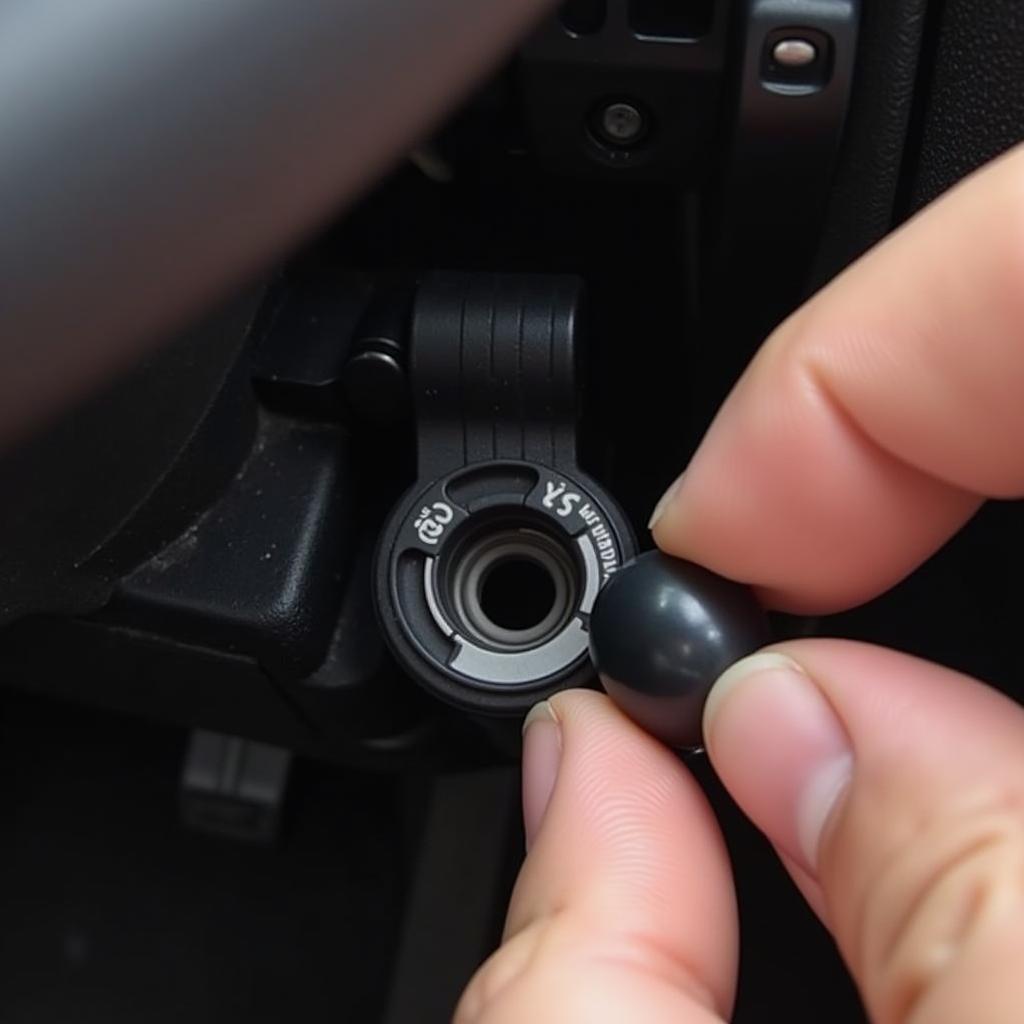“Brake Fault. Stop Vehicle.” These words flashing on your VW Passat’s dashboard are enough to make anyone’s heart skip a beat. This warning indicates a potential problem with your braking system, and it’s crucial to address it promptly. While the issue could range from a minor sensor malfunction to a more serious mechanical fault, remote diagnostics can often pinpoint the problem.
Understanding Your Passat’s Brake System
Before delving into potential causes and solutions, it’s helpful to understand the basics of your VW Passat’s braking system. It’s a complex network of components working together to ensure your safety.
- Hydraulic System: This system uses brake fluid to transmit force from the brake pedal to the wheels, ultimately slowing down or stopping the vehicle.
- Electronic Brake-force Distribution (EBD): This system optimizes braking force to each wheel, improving stability and control during braking.
- Anti-lock Braking System (ABS): The ABS prevents wheel lockup during hard braking, helping maintain steering control and reducing stopping distances.
- Electronic Stability Program (ESP): This system helps maintain vehicle stability and prevent skidding, especially on slippery surfaces or during emergency maneuvers.
 VW Passat Brake System Diagram
VW Passat Brake System Diagram
Common Causes of “Brake Fault. Stop Vehicle” Warning
Several factors can trigger the “Brake Fault. Stop Vehicle” warning on your VW Passat. Here are some of the most common culprits:
- Low Brake Fluid: Brake fluid is the lifeblood of your braking system. If the fluid level is low, it can indicate a leak or worn brake pads.
- Worn Brake Pads: As brake pads wear down, they lose their effectiveness, and the system may trigger a warning.
- Faulty Brake Pad Wear Sensor: Most modern cars, including the VW Passat, have sensors that monitor brake pad wear. A malfunctioning sensor can trigger a false warning.
- ABS Sensor Issues: ABS sensors monitor wheel speed and can trigger the warning if they malfunction or become obstructed by dirt or debris.
- Brake Fluid Leak: A leak anywhere in the hydraulic system, from brake lines to calipers, can lead to a significant drop in brake fluid pressure, triggering the warning.
- Master Cylinder Problems: The master cylinder is responsible for converting pedal pressure into hydraulic pressure. A failing master cylinder can lead to braking issues and trigger the warning.
What to Do When the Warning Appears
If you see the “Brake Fault. Stop Vehicle” warning on your VW Passat, follow these steps:
- Pull Over Safely: Find a safe location to pull over immediately. Do not attempt to continue driving with a potential brake system issue.
- Check Brake Fluid Level: If possible, carefully check the brake fluid level in the reservoir. Refer to your owner’s manual for the location and recommended fluid type.
- Contact a Professional: If the brake fluid level is low or you suspect any other issues, do not attempt to diagnose or repair the problem yourself. Contact a qualified mechanic specializing in VW vehicles or a trusted service center.
Remote Diagnostics: A Modern Solution
In many cases, remote diagnostics can be the first step in identifying the cause of your Passat’s brake fault warning. By connecting your vehicle to a specialized diagnostic tool, our technicians can remotely access your car’s computer system and retrieve valuable information, including:
- Error Codes: These codes pinpoint the specific area within the braking system where the fault lies.
- Sensor Data: Analyzing sensor data can reveal if any sensors are malfunctioning or providing incorrect readings.
- System Performance: Remote diagnostics can assess the overall performance of your braking system, identifying potential weaknesses or developing issues.
 Remote Diagnostics for VW Passat
Remote Diagnostics for VW Passat
Benefits of Remote Diagnostics
- Convenience: Get your VW Passat diagnosed from the comfort of your home or any location with an internet connection.
- Speed: Remote diagnostics eliminates the need to physically take your car to a shop, saving you time and potential towing costs.
- Accuracy: Specialized diagnostic tools provide accurate and detailed information, enabling technicians to identify the root cause of the problem efficiently.
Get Back on the Road Safely
Experiencing a “Brake Fault. Stop Vehicle” warning can be unsettling, but it’s important to remember that addressing the issue promptly and seeking professional help are crucial for your safety. Remote diagnostics offer a convenient and efficient way to diagnose the problem.
Expert Insight:
“We often see drivers ignore the brake fault warning, assuming it’s a minor glitch. However, even intermittent warnings can indicate a developing problem. Early diagnosis through remote diagnostics can prevent costly repairs and ensure your safety on the road.” – John Miller, Senior Automotive Diagnostic Technician.
FAQs:
-
Can I drive my VW Passat with the brake warning light on? No, it is not safe to drive with the “Brake Fault. Stop Vehicle” warning illuminated. Doing so could lead to brake failure and a serious accident.
-
How much does it cost to fix a brake fault on a VW Passat? The repair cost depends on the underlying issue. A simple sensor replacement might cost a few hundred dollars, while a major brake system repair could cost significantly more.
-
How often should I get my VW Passat’s brakes checked? It’s recommended to have your brakes inspected at least once a year or every 10,000-12,000 miles, or as recommended in your owner’s manual.
Remember, your safety is paramount. If you’re experiencing brake issues with your VW Passat, don’t hesitate to seek professional assistance. We offer remote diagnostics and a range of services to get you back on the road safely. Contact us today!
Internal Links:
- Learn more about common vw brake wear warning light issues.
- Find out how to perform a passat brake pad warning light reset.
- Get insights into the 2004 vw passat brake pad warning and solutions.
- Understand the different types of passat brake warning indicator and what they mean.
- Discover how to address the vw check brake pads warning effectively.

